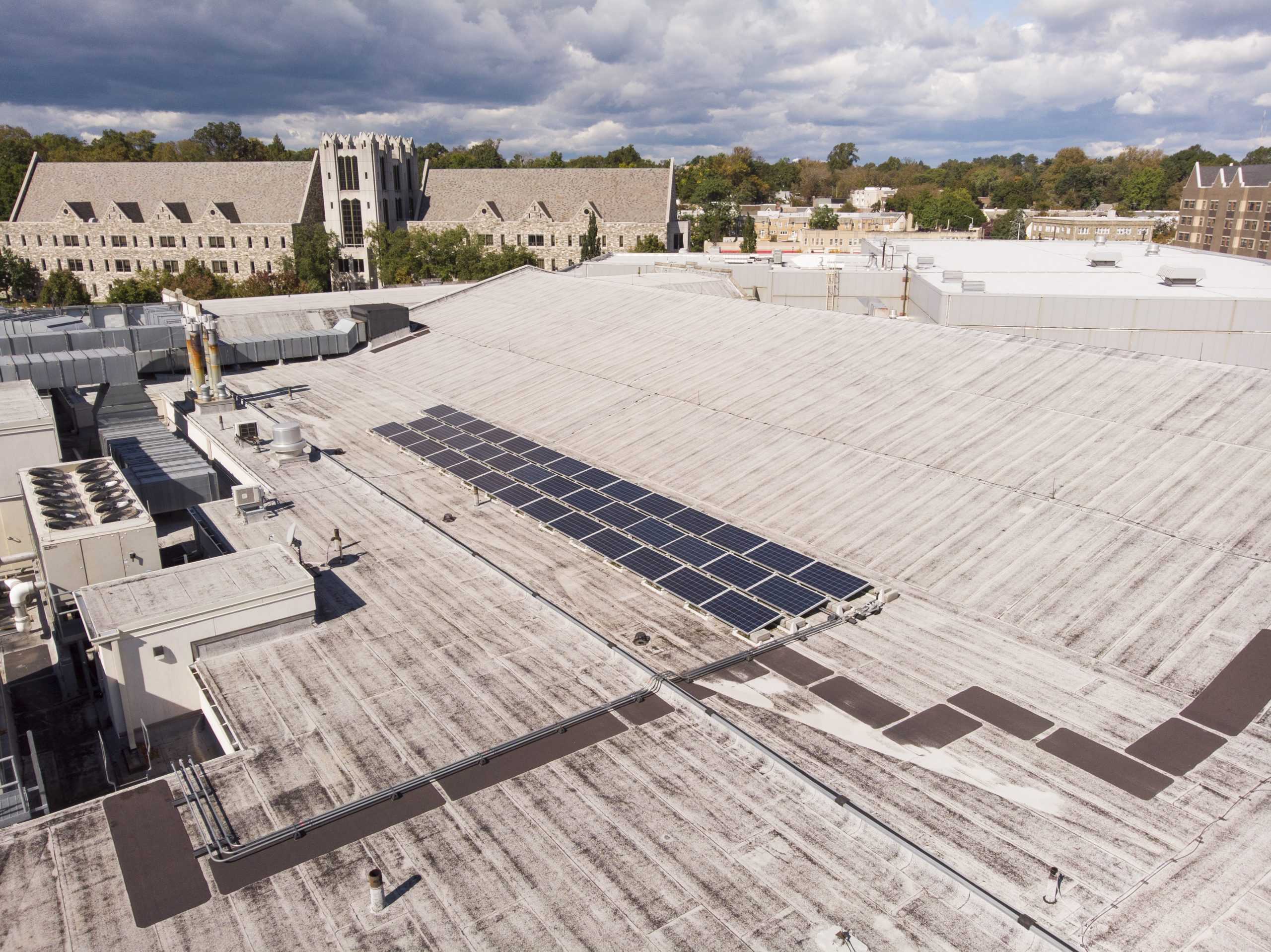The St. Joe’s community has increased efforts on campus to take action against climate change.
The Pennsylvania Climate Action Plan 2021 calls for all sectors of the state to respond to the threat posed by climate change, including universities taking part in the fight against climate change. Organizations, such as Green Fund and St. Joe’s Community Garden, as well as the Barnes Arboretum, have introduced local-level initiatives and projects to address climate change on campus.
Clint Springer, Ph.D., associate professor of biology and director of the Institute for Environmental Stewardship and the Barnes Arboretum, said that lack of action on climate change would create a more dangerous world for everyone.
“Because of [the] changing climate, we’re [going to] see that food shortages, food riots, wars over water, all of those things are going to go in a very different direction,” Springer said.
The statewide plan calls for a transition to renewable energy. On campus, SJU Green Fund installed solar panels on the roof of Hagan Arena. Alex Coyle ’22, co-president of SJU Green Fund, said she was proud of this accomplishment, but that it is something only the athletes tended to notice.
Coyle said she is now looking to install solar powered benches with charging stations on campus and hold more events this year for the organization.
“We definitely want to get more events that get our members involved, whether it’s just a quick recycling cleanup around campus, or just other little things,” Coyle said. “We also partnered with HipCityVeg for [our] last meeting, so we want to get more people to eat more plant based by having meatless Mondays and fun things like that.”
Pennsylvania’s Climate Action Plan also includes planting new trees to offset carbon. Springer said he was concerned about the slow replacement of trees at St. Joe’s and the university’s carbon footprint.
He is hoping to speak with university leadership to address the topic, especially with the upcoming merger with University of the Sciences, Springer said.
“We want to have that conversation sooner rather than later, especially as we think about adding to our physical footprint and environmental impact,” Springer said.
Jennifer Walker, head gardener at the Barnes Arboretum, said that erosion has caused damage to the soil and its ability to capture and sequester carbon. One of the ways she maintains the health of the soil is by using undistributed issues of The Hawk for compost.
“I’ll put newspaper down then add compost, wood chips and leaves on top so the newspaper gets back into the landscape,” Walker said. “That really helps with building soil life and keeping unwanted weeds down and building that soil health.”
With climate change altering agricultural production, Alex Manduca ’22 and Lizzie Wash ’22, co-associate directors of the St. Joe’s Community Garden, said that they are introducing technology to monitor changes in the garden and develop strategies to adapt to changes.
“We have computers that are going to monitor properties of the soil, air, humidity, salinity, just the environment of the garden,” Manduca said. “We can adjust properties of the soil, we can water more frequently or less frequently, depending on whatever our technology tells us.”
In addition to changes in agriculture, climate change is causing the destruction of numerous species. Over half of all bees in North America are on the decline, according to The Center for Biological Diversity. The SJU Green Fund is currently looking to start a bee colony on campus, said Caitlin Thiel ’22, co-president of SJU Green Fund.
“One of the ideas that I want to complete this year is a bee farm just because bees are really awesome for the environment,” Thiel said. “Without them, we probably wouldn’t be here.”
While climate change impacts all of us, it especially hurts certain communities. The Environmental Protection Agency (EPA) found that Black Americans are 40% more likely to live in areas with increasing mortality rates due to climate change, and low-income individuals are about 25% more likely to live in areas vulnerable to coastal flooding.
Pennsylvania designates areas with high concentrations of vulnerable communities as “Environmental Justice Areas.” Springer said that the lens of social justice is the best way to look at climate change, which makes it essential to the mission of St. Joe’s.
“We have the scientific understanding of the climate system, we have the technical abilities, and the engineering abilities to solve many of those problems with alternative solutions, we just lack the political will to do so,” Springer said.
Don Sullivan ’24 contributed to this story.













































